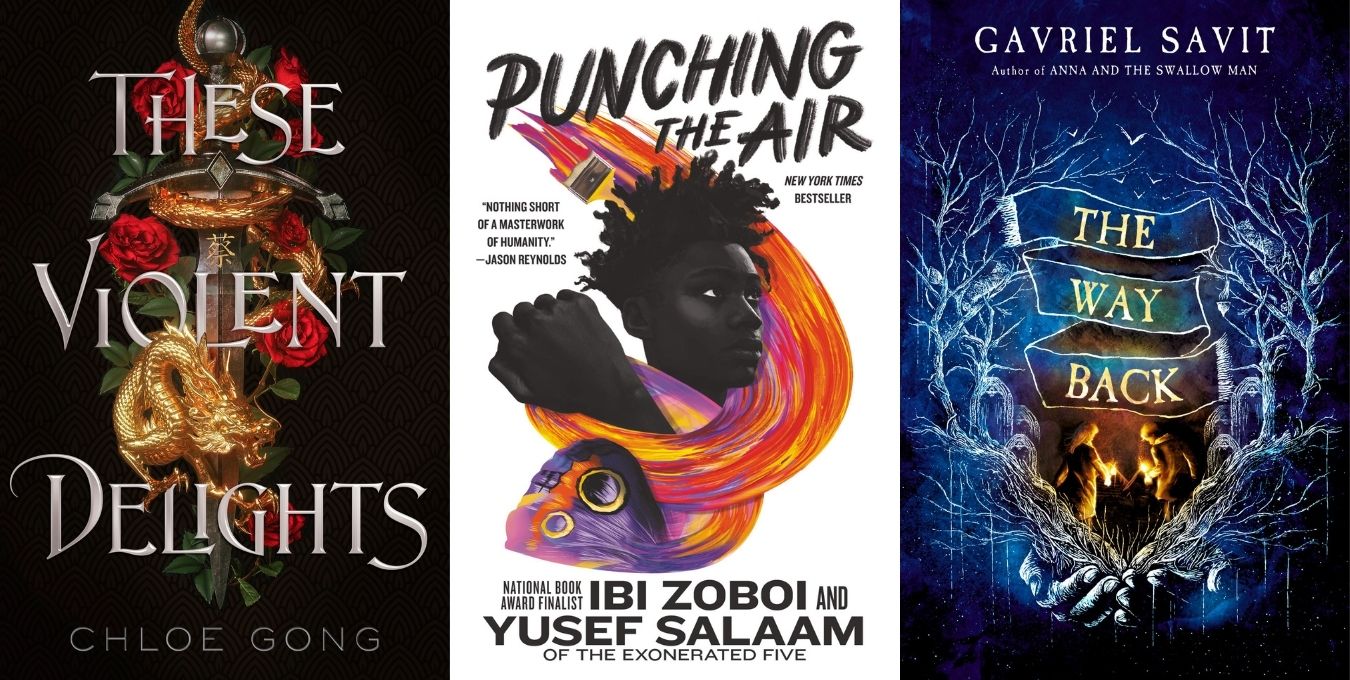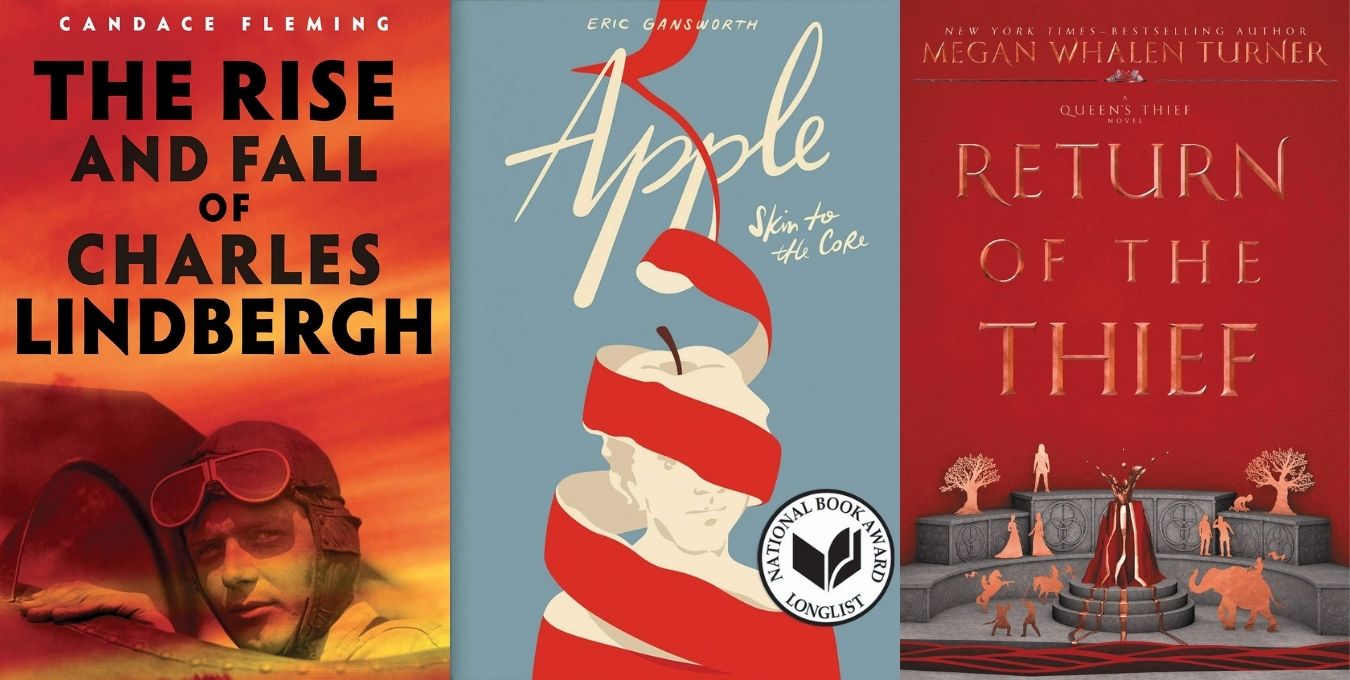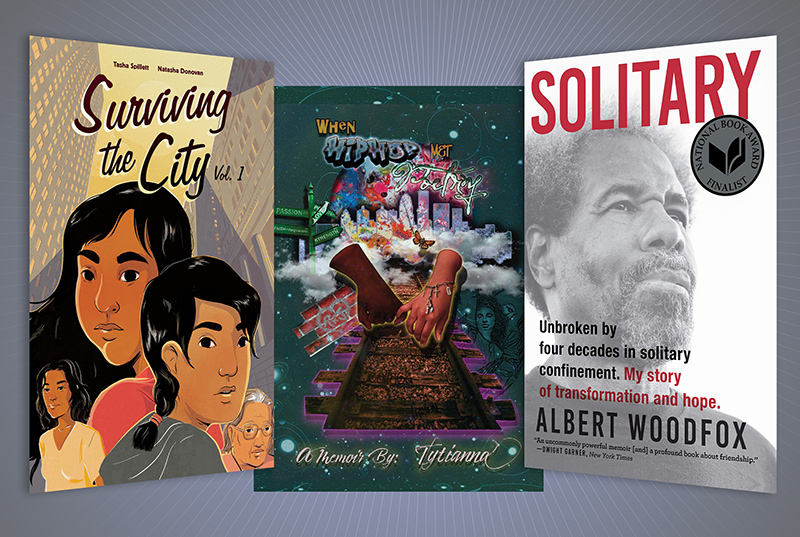The Revised Newbery Manual: A look at recent updates to the guiding publication of the Newbery Committee
During our Heavy Medal Mock Newbery discussions we often reference two key documents: The Newbery Terms and Criteria and the Newbery Manual. Early in 2023, ALSC published a revised edition of the Newbery Manual. Today we’ll take a look at the updated version and share some background about how it came to be.
The Newbery Manual, while it’s available to anyone, is specifically designed to guide, support, and clarify the work of the 15-member Committee. Members are encouraged to think of it as their “bible.” It covers all kinds of subjects: history, confidentiality, processes and procedures, and much more. Here on Heavy Medal, the Manual is especially useful for questions of eligibility, both for authors and for individual books. It’s also helpful as we try to follow, in our own highly adapted ways, the procedures of the real Committee.
ADVERTISEMENT
ADVERTISEMENT
It turns out that the revised Newbery Manual is the result of a larger project which resulted in revisions for all of the ALSC Award Manuals, including Caldecott (for picture books), Sibert,(informational books), Geisel (beginning readers), and Batchelder (translated books), as well as Newbery.
To find out more about how and why the revisions came to be, I corresponded with a few members of the Award Manual Revision Working Group: my friend Suzanne Harold from the Astoria Public Library in Oregon, and the two co-chairs of the group, Caitlin Jacobson and Carol Phillips, who generously provided a summary of their work. I’ve included their full summary at the bottom of this post. Here are some highlights:
Caitlin and Carol note the multiple goals of the group:
Goal: “Update language for inclusivity”
A section about inclusivity had been added to the Newbery Manual several years ago. Now it’s in a more prominent place, under “Diversity and ALSC Media Award Evaluation” (p 15-16).
Goal: “Align manuals and make more sections identical”
It makes sense to have the multiple manuals similar in organization, and to match language where it makes sense. It must have been quite a challenge to accomplish, though. The group also wisely developed a “manual template” to guide future updates for all manuals.
Goal: “Add to examples of award eligibility”
I mentioned above how helpful those examples are for Mock groups like ours. The “Expanded Definitions and Examples” section (57-66) helps to clarify specific portions from the Terms and Criteria. This section in the revised Newbery Manual increased in length by about 30%, with several more recent publications added as samples.
Covid Impac
Caitlin and Carol note that “we had barely gotten started when Covid hit.” So the new Manuals take into account the way virtual meetings are now a permanent part of the Committee process. During my terms, and I believe Emily’s as well, the Committee met three times in person, with the beginning-of-the-year one optional. That’s changed though. The first two are virtual now; the Selection Meetings that occur at LibLearnX are the only in-person meetings. But more virtual interactions have been added:
Optional Virtual Meetings
A Chair can now schedule more virtual meetings that “can provide time for members to troubleshoot, compare notes, and ask questions. The Chair might also invite guest speakers to present at these virtual meetings.” (22) I like this addition a lot, where the Committee can have meaningful interactions during the year, even though there can be “no official business” (ie book discussion).
Preliminary Deliberations
Until recently, the Committees would start the final Selection Meetings in January (sometimes February) with the full list of Nominated titles, and work it down to a Medal book by the end of a long couple days. Now they can narrow that list down ahead of time in virtual discussions:
“Beginning early in January…committees will meet virtually…to discuss the nominated titles, and initial cuts may be made by consensus.” (29)
We don’t get to know how many “initial cuts” are made, but my guess is that there would be enough to make a difference. (This might be where I would need to give up on BUFFALO FLATS). Shortening the final list would allow for even more focused and rigorous discussion leading up to the final balloting. I knew this had happened with Covid travel restrictions, but didn’t realize it’s now part of the process every year. I’m glad it is!
Terms and Criteria
These are still unchanged. And as Caitlin and Carol note, “each committee is empowered to make its own decisions on winning titles. The manual guides the work, but each committee makes choices about interpreting terms and criteria of that award.” (So we still won’t know if this year’s committee thinks GATHER is for older readers, for example, or whether they will rate the “delineation of characters” in REMEMBER US is as highly as I might…)
The Manual revisions seem excellent to me, and I really appreciate the background that Caitlin and Carol provided for us, and of course the work they put in on the revisions over the course of three years(!), along with the other group members: Eileen Makoff, Jean Gaffney, Armin Arethna, Christy Estrovitz, Suzanne Harold, and Tessa Michaelson Schmidt, with support from Jordan Durbin and Kathie Meizner.
Here’s a more complete summary that Caitlin and Carol provided for us:
This project was originally spearheaded by K.T. Horning, and was meant to fine-tune issues around social media and promotion of the awards. A small group worked on these issues in 2017, and then, in 2019, a new committee was formed to finalize decisions and make a few minor updates. It was determined that a more extensive review of all award manuals was needed. As a result, in May of 2020, the official Award Manual Revision Working Group was established.
ADVERTISEMENT
ADVERTISEMENT
We had barely gotten started when Covid hit. Suddenly, all processes changed! The required in-person meetings at the Annual and Midwinter conferences were no longer happening. Our work became less about how committee members talk about the award, and much more about how the committees actually operate in a new, and entirely virtual environment. It took months to figure out how new processes would work, with each award committee working through glitches and suggesting improvements. Policies had to be developed for this totally new climate.
In between these process issues, our team worked on an overhaul of the manuals. We had multiple goals: update language for inclusivity; align manuals and make more sections identical; add to examples of award eligibility; and fix minor issues noted over the years. We decided to work on a “manual template” that would allow easier updates across all award manuals. We had a master editor on our team, and her work was invaluable in finding all the spots that needed help. ALSC members might be surprised at how out of sync the manuals were!
There are two guiding principles for each award committee: one is that the award manual serves as a “bible” for the year, with instructions on how to do the work of the committee; the other is that each committee is empowered to make its own decisions on winning titles. The manual guides the work, but each committee makes choices about interpreting terms and criteria of that award. And these principles guided the work of our committee as well. We came out of our 3 year project with a greater appreciation for the manuals themselves, and of the “process” of each award committee.
Our 5 members and 2 co-chairs had years of experience between them – previous award chairs, Priority Consultants, previous award manual work, and members of award committees. It was a terrific group, and we are very happy with our finished products! Ultimately, we feel that the new system, guided by the manuals, has made for a better, more accessible opportunity for members of ALSC to participate and add their expertise in the award experience.
Thanks so much to Carol and Caitlin for the summary! Feel free to share reactions and questions in the comments below…
Filed under: Newbery Experience, Process
About Steven Engelfried
Steven Engelfried was the Library Services Manager at the Wilsonville Public Library in Oregon until he retired in 2022 after 35 years as a full-time librarian. He served on the 2010 Newbery committee, chaired the 2013 Newbery Committee, and also served on the 2002 Caldecott committee. You can reach him at sengelfried@yahoo.com.
ADVERTISEMENT
ADVERTISEMENT
SLJ Blog Network
Name That LEGO Book Cover! (#53)
Review of the Day: Being Home by Traci Sorell, ill. Michaela Goade
Exclusive: Vol. 2 of The Weirn Books Is Coming in October | News
Fighting Public School Book Bans with the Civil Rights Act
North Texas Teen Book Festival 2024 Recap
ADVERTISEMENT








Mr. Engelfried,
Thank you so much for your blog posts. This update was great to read. As I am selecting from the pool of great books for youth review, its fun to read the reactions of experienced reviewers.
I think so much of it comes down to the President and Chair of the committee. The fifteen members appointed will be a reflection of their relationships and experiences. I hope that they select a diverse and modern group. I hope one day, they also choose a kid to be a part of their virtual discussion. The Newbery Medal holds so much weight for us, the younger generation of readers.
In they end, I hope they choose a book that will draw kids in and appeal to a wide range of readers.
I think people of a certain age would have a lot of interest in this for pre-1973 years. Maybe a historical study could be commissioned? I don’t know if these materials were actually kept from back then. I think this is new to the Newbery manual, but did this policy exist before in another document? And where is this archive?
Page 36:
Preservation of Committee Materials
ALSC preserves suggestion lists, nomination lists, and justification statements (with names
redacted); minutes (in keeping with how they are currently posted so that they do not include
confidential discussion points); the Chair’s press remarks; copies of congratulatory letters, and the
Chair’s award presentation remarks, adding these materials to the current archive. ALSC permits
publication of this information after a period of 50 years following the presentation of the
medal/award.
Yes, looking at notes and nominations from 1973 and earlier would be so fascinating. I’m pretty sure, though, that the 50-year rule only applies from the time that policy change was made, in 2016. So we wouldn’t be able to see those confidential materials until 2066. At that point, I believe committee members are also free to share what they recollect…so Emily can tell all in 2069. I’m mostly sure that’s the case, but if anyone else knows something different, please correct me…
One piece of inside Newbery information comes from 1973-1976, where the lists of nominated titles were actually published. I’ve posted this in the past, but it’s a nice example of how an extra deep glimpse into the committee’s work can be really interesting:
Several years ago the late Peter Sieruta shared the list of nominated titles from 1973 – 1976 on his wonderful Collecting Children’s Books blog. Many old favorites (FREAKY FRIDAY! SOUP!) and many more that I’ve never heard of. You can see those lists here, scrolling down about ⅔ of the way down his post.
Thanks for compiling Steven. I think you and Leonard can be presidents of the history committee and I do question why you were not the third co-chair of this!!
Also want to point out that Heavy Medal arguably anticipated the current Newbery process! Online discussion of the full Heavy Medal Book List narrowing the contenders down for the webcast discussion seems quite analogous to what’s now in the manual with its preliminary deliberations and final selection meeting.